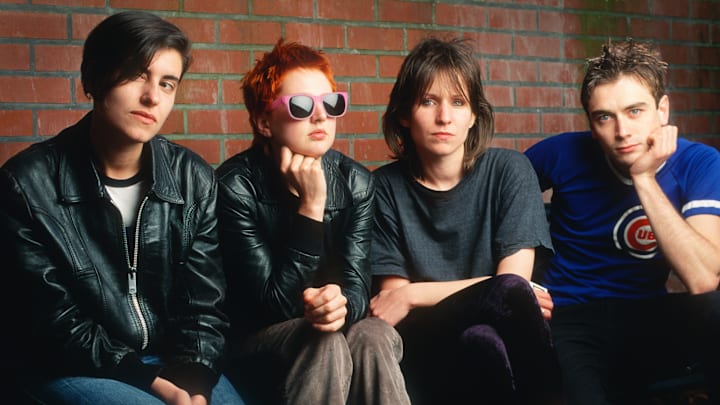Bands break up all the time, for all sorts of reasons. The most dramatic reason is death – see Nirvana, Led Zeppelin, and the Minutemen. The most boring reason is money. I mean, who really wants to hear how NWA broke up because Ice Cube was writing most of the songs but Easy E was pocketing most of the cash? Or how Gordon Gano sold the biggest Violent Femmes song to Wendy’s? Or how the Zombies thought they were broke?
The most entertaining reason, and also the most common, is personality. The cool thing about personality conflict is that the feuding band members are still around, and with a little prodding they will go off on their former bandmates. Sometimes, it doesn’t take all that much prodding. Just say “hello” to a Gallagher brother. Mention David Byrne to Chris Frantz or Tina Weymouth. Mention Morrissey to anyone.
So sure, bands break up all the time. But sometimes it hurts more than others. Those are the times when the band didn’t put out all that much music before the break-up. And the music they did put out -- well, it was really good. The times that the band was actually getting better, though record sales may have suggested otherwise. If they had just been able to stick it out a little while longer, who knows what they would have given to the world?
Five bands from the 1990s that ended too soon
Alas, we can’t know. (Actually, sometimes we can. More on that in a little bit.) But for now, the best we can do is remember. That’s today’s exercise. Here are five bands – all from the 1990s - (sort of) - whose demise came far too soon. Why the ‘90s? Because that offers enough distance to consider their true legacy.
Oh yeah, and all five were fronted by women. Why women? Why not?
PRELUDE – ROMEO VOID
Before we get the above-referenced bands, let’s check in on their spiritual foremother, Romeo Void. The post-punkers from the Bay hit the ground running with 1981’s It’s a Condition. Fronted by Debora Iyall, they were equal parts tough and hooky. Their songs featured a brisk rhythm line which allowed Peter Woods to play around on guitar. Benjamin Bossi’s sax runs would form a nice conversation with Woods’ guitar, and Iyall’s powerful, assured vocals gave all the jagged pieces coherence.
Their first album hinted at a ska-tinged pop that could potentially score with a wide audience. And indeed, when they kicked off their second album with Iyall’s signature snarl on “Never Say Never,” they cracked the US Mainstream chart. Their third album and its lead single “A Girl in Trouble (Is a Temporary Thing)” went even further, again showcasing everything the band did well.
But on the very first track of their very first album, Iyall sings “I don’t want anyone to try – to try to understand me.” And that proved prophetic. She remained an enigmatic presence, and when the band’s label Columbia expressed concerns about Iyall’s weight, it led to a break that would never be repaired. After that third album – their most successful – Romeo Void called it a day.
